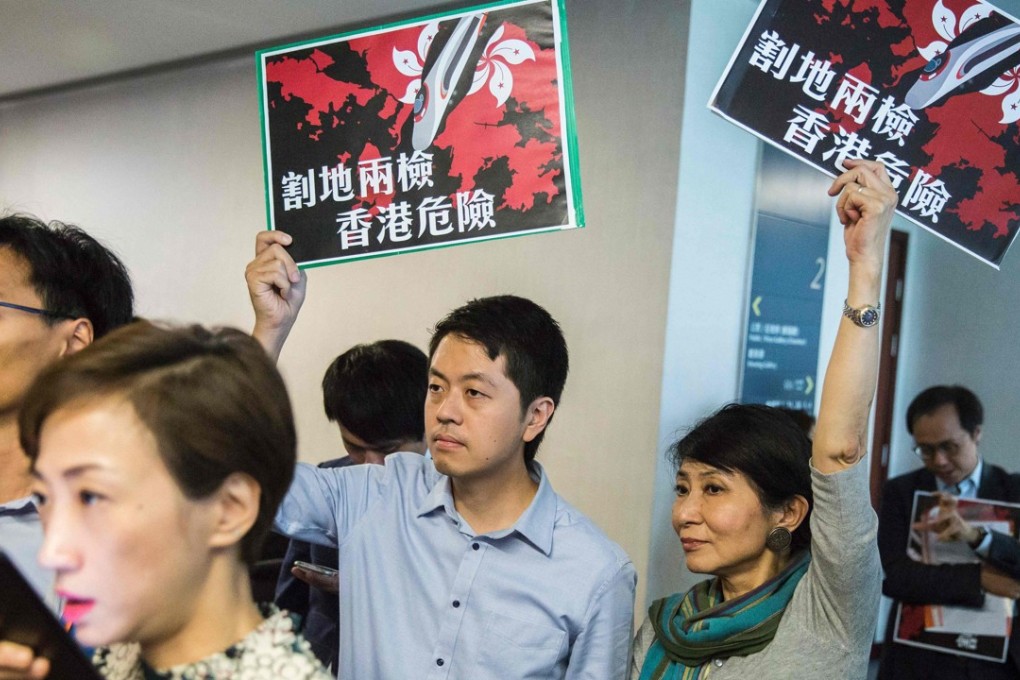Advertisement
Joint checkpoint plan heralds new era of Hong Kong-mainland China integration
Tian Feilong says the proposal to allow mainland immigration authorities to operate within Hong Kong is legally sound and is another step towards the gradual integration of the two systems
Reading Time:4 minutes
Why you can trust SCMP

Discussion on a joint immigration checkpoint for Hong Kong’s high-speed railway to Guangzhou has been going on for a while, yet when the government formally unveiled its proposal last month, opponents still raised a hue and cry against the unreasonable “ceding of Hong Kong land”, the “violation of the Basic Law” and the “undermining of Hong Kong’s autonomy”.
Hong Kong takes pride in its rule of law, and major decisions are generally made only after extensive public consultation. But differences are not always bridged.
The co-location plan is provocative precisely because, at one stroke, it allowed the state power that had always been kept outside the SAR’s borders to legally enter its domain. The plan thoroughly ruined the opposition camp’s idea of an imaginary, fully autonomous Hong Kong, and suggests what it will become – a city increasingly integrated with the mainland.
Advertisement
In this future, once the express railway is operational, Hong Kong will become ever more reliant on the mainland economy, and the people of both sides ever more connected. As integration proceeds apace in the Greater Bay Area and the economic sphere created by the “Belt and Road Initiative”, Hong Kong would soon be folded into the nation’s political and economic order.
China has come a long way since 1997. Will Hong Kong get on board via express rail link?

Hong Kong opposition feeds on people’s inborn mistrust of Beijing
Advertisement
Select Voice
Choose your listening speed
Get through articles 2x faster
1.25x
250 WPM
Slow
Average
Fast
1.25x